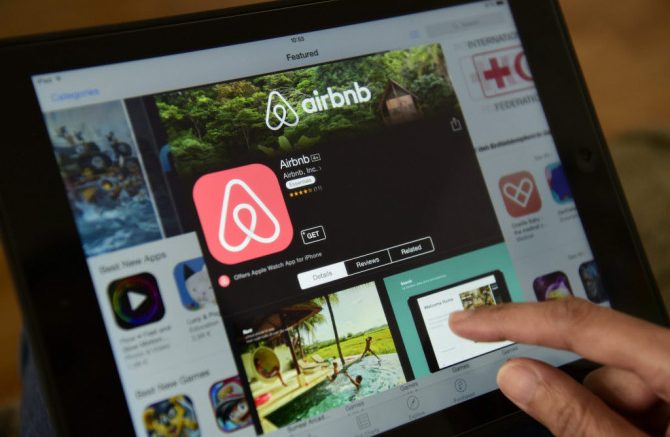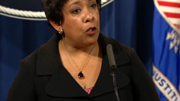Chicago crossed the line into the privacy of people’s homes — and violated constitutional protections — by imposing sweeping regulations governing Airbnb and other home-sharing services, a federal lawsuit contends.
Constitutional rights to “communicate freely and anonymously on the internet,” use your own property, be guaranteed due process and protected against illegal search and seizure are all trampled by the ordinance painstakingly negotiated by aides to Mayor Rahm Emanuel and approved by the City Council, Airbnb hosts contend.
The 73-page lawsuit was filed Friday by Keep Chicago Livable, a nonprofit formed by current and former Airbnb hosts. It ultimately seeks to overturn the mayor’s ordinance. While awaiting that ruling, it seeks an injunction barring the city from implementing the ordinance on Dec. 17.
“What this case is about is the sanctity of the home. The government’s ability to regulate stops at your front door. Chicagoans should not have to ask the government for permission to have sleepovers in their own homes,” said Shorge Kenneth Sato, an attorney representing Keep Chicago Livable.
“The law requires Airbnb to share with the government all information about its users in Chicago without a warrant, consent, or proof of any crime. Information about who they have as guests, where they live, how much they paid, how long they stayed. That’s illegal. Their privacy is violated. All that information is private. Government has no business knowing that.”
“This is a law that effectively bans an activity that brings in hundreds of millions of dollars to middle-class families and tens of millions in tax revenue, increases property values and reduces the vulnerability of Chicagoans to economic fluctuations. We want it overturned.”
The lawsuit is only 15 pages shorter than the ordinance itself. And that’s part of the problem, according to Keep Chicago Livable president Benjamin Thomas Wolf.
“It’s incredibly complex and nearly impossible to understand. . . . I have a Ph.D. and I don’t understand this law. Our attorney has been working in constitutional law for years and he doesn’t understand this law,” Wolf said Tuesday.
Wolf accused Chicago aldermen of over-reaching in a misguided attempt to “regulate the shared economy.”
“They’ve never been guests or hosts. They passed an enormously complex law about a system they don’t understand. We want some time to work with them in redrafting this ordinance. We’re not asking for money. We just want them to pay attention to what the city wants,” he said.
Law Department spokesman Bill McCaffrey said the Emanuel administration intends to “vigorously defend” the ordinance against legal arguments that “lack any merit.”
Airbnb spokesman Ben Breit said the home-sharing giant is “100 percent focused on educating” its hosts about the new rules and regulations.
Five months ago, the City Council voted 43 to 7 to impose sweeping regulations that pleased no one.
The vote came after months of debate on how to balance the interests of Airbnb hosts, who are thrilled with supplementing their incomes by booking spare rooms, with the concerns of neighbors disgusted by the the fraternity party rowdyism of some short-term renters.
The ordinance allows residents of individual voting precincts to ban Airbnb and its competitors from residential neighborhoods, using a petition process similar to the one used to vote precincts dry.
In hopes of avoiding a federal lawsuit, Emanuel also backed off his threat to hold Airbnb responsible for policing its home-sharing hosts.
Instead, the ordinance imposed a $60-per-unit fee to generate more than $200,000 a year for enforcement of the regulations. That’s in addition to a 4 percent surcharge on Airbnb and other home-sharing bookings and a $10,000 annual license for each of the web-based companies.
The ordinance also mandates bi-weekly registration reports to the city and includes a 24-hour hotline and a requirement that Airbnb develop a plan to address “quality-of-life concerns” that includes “removal of problem units” from the company’s home-sharing platform.
Those changes were not enough to satisfy Ald. Michele Smith (43rd), whose constituents have had it with “investors who push out tenants in favor of tourists.”
Smith, whose Lincoln Park ward is home to 500 Airbnb listings, accused the mayor of cowering to the demands of a “$25 billion bully.”
The new regulations had the grudging support of Airbnb, the industry leader that has seen its business model threatened by new regulations around the world.
On the day after the City Council vote, an Airbnb host warned that Emanuel had inadvertently set the stage for a “burglar’s paradise” by creating an online registry of home-sharing listings as part of his plan to tax and regulate Airbnb.
Airbnb host Tracy Thirion said would-be thieves could compare the addresses on the city’s registry to listings on Airbnb and other sites, find out when the houses will be vacant and see lavish pictures showing the merchandise available inside.
Source: chicago.suntimes.com




